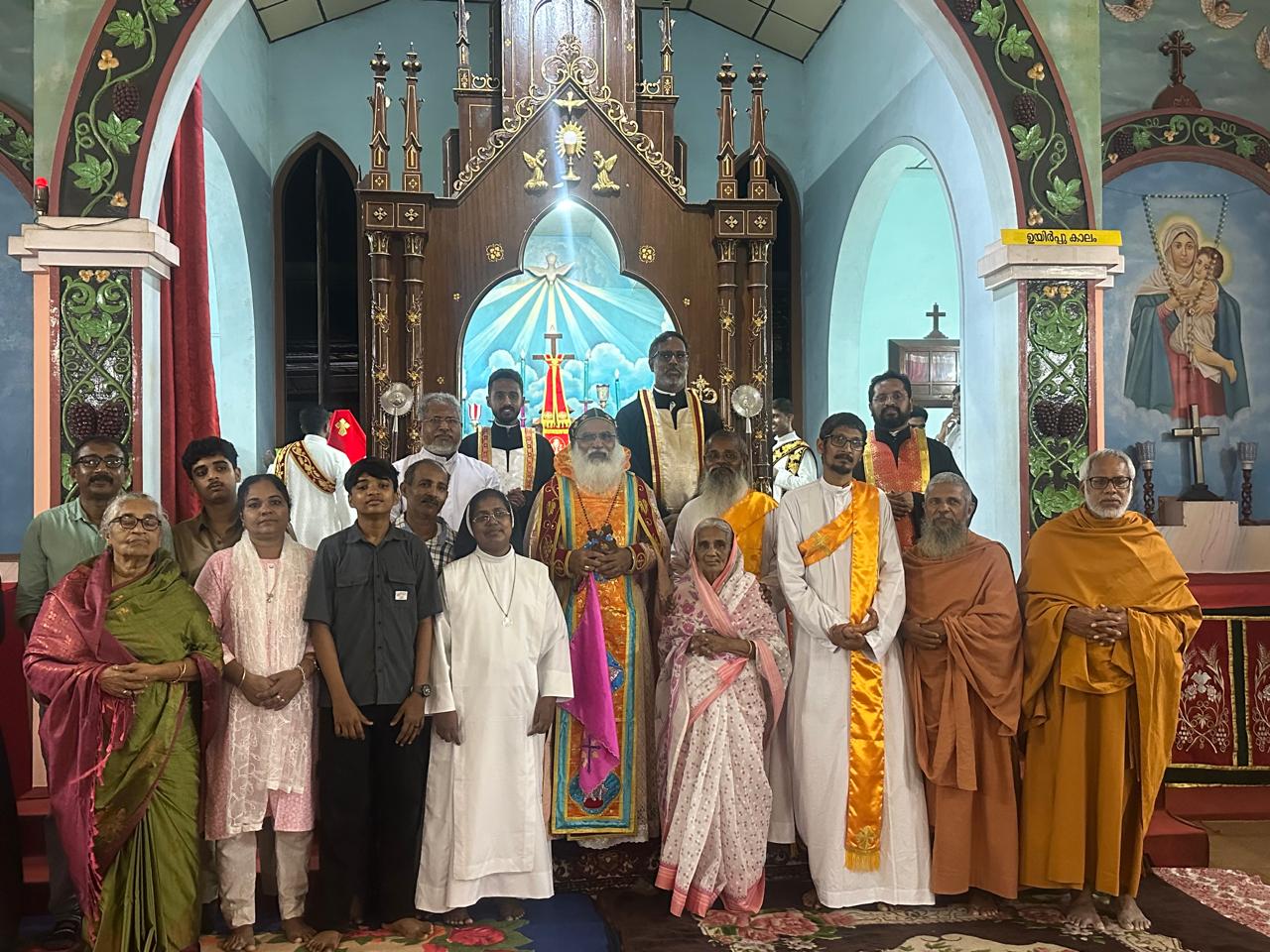
Nestled in the heart of the Sahya Mountains, Kurisumala Ashram stands serene amidst the misty hills of Vagamon, Kerala. The ashram sits nearly 4,000ft above sea level on the border of Kottayam and Idukki districts, surrounded by lush tea plantations and forested slopes that evoke a sense of calm and otherworldly beauty.
Geography: The Mountain Sanctuary
Kurisumala literally means “Mountain of the Cross”—‘Kurisu’ (Cross) and ‘Mala’ (Mountain) in Malayalam. Established in 1958, the monastery rests in a land that provides rocky clefts for honeybee hives, gentle pastures for dairy cows, and solitary corners for meditation. The breeze carries whispers across the valley, mingling with birdsong and sanctifying the silence that pervades the land.
Members and Community
Kurisumala Ashram’s community consists of monks—sannyasis, brahmacharis, and sadhakas—spiritual seekers who have left their homes to embrace a life of simplicity and service. The numbers remain deliberately modest (often around twenty residents) to preserve the intimacy and spiritual focus of the group. Formation takes place communally under the guidance of experienced elders, and the lifestyle is rooted in monastic values: stability, poverty, chastity, simplicity, and obedience.
Prayer Life
A day here begins before sunrise. At 3:45a.m., the community gathers for a silent vigil and meditation followed by yoga, scripture reading, and reflection. The Eucharistic celebration marks the spiritual center of the day, often accompanied by meditative chanting—“Om Shri Yesu Bhagavate Namah” (“I bow before you, Jesus”)—blending Indian spiritual heritage with Christian devotion.
The prayer book, "Prayer with the Harp of the Spirit", compiled and translated by Francis Acharya from the ancient Syriac liturgical tradition, guides the day’s liturgical rhythm (Vespers and Vigils are in English). Monks maintain the spirit of prayer throughout their work, culminating in the evening Satsang: a gathering for bhajans, spiritual songs, and communal reflection. Silence is not just golden here; it is the cornerstone of spiritual pursuit.
The remainder of the day consists of studies, spiritual readings, meditation, and prayer.
Work in the Area
True to Gandhian principles of “bread-labor,” the monks dedicate working hours daily to farming, cooking, and upkeep. The ashram supports itself and nearby families with a dairy farm. This fresh milk nurtures both the monastery and the local population, symbolizing the biblical promise of “milk and honey” in tangible form. Food is treated as a gift, never wasted, and what is left is faithfully shared with the poor. There is also a modest tea-plantation that grows organic tea without pesticides.
Hospitality: Sharing Life
Hospitality is the heartbeat of life at Kurisumala. Visitors are welcomed not as outsiders, but as fellow seekers and guests of the spirit. All are invited to join in prayer, meditation, and Satsang. Whether you are staying for an afternoon or a week, the ashram’s monks offer shelter, simple meals, and the invaluable gift of silence. Guests pray and share in the work of the community, extending the koinonia —the communion of souls—to all four corners of the earth. Hospitality at Kurisumala is not mere ritual; it is the daily practice of love and inclusion.
“The monastery houses a community of spiritual seekers who leave their home and are not allowed to go back,” commented one visitor. “Monks who stay here spend their time working, studying, and praying. A holy mass takes place here, the chants for which have been adapted from the Hindu form, embodying interfaith harmony."
Kurisumala Ashram thus stands as a beacon of peace, inviting all—pilgrims, wanderers, and seekers—to find rest and transformation in its cool mountain embrace. To share life here is to join a rhythm of prayer, work, study, and communion with nature and with one another. In silence and hospitality, the spirit finds both home and freedom.
